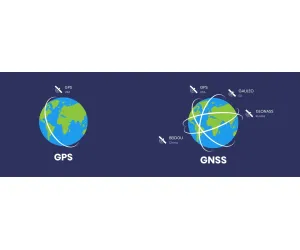Fleet tracking is a management system that leverages GPS technology to monitor the activities of fleet vehicles and assets, including workers and equipment. Often referred to as vehicle tracking or Automatic Vehicle Location (AVL), a fleet typically consists of land-based assets like cars, trucks, field workers, and powered or unpowered equipment such as trailers.
How Does Fleet Tracking Work?
GPS fleet tracking uses telematics technology to gather data from vehicles and other assets. A GPS tracking device, often connected to a vehicle's OBD port, collects this data in near real-time. This allows fleet managers and business owners to make informed operational decisions, such as:
- Determining which vehicle to dispatch to a job
- Locating the nearest equipment, like a crane
- Tracking inventory, such as generators in the yard
- Ensuring the safety of lone workers returning from jobsites
Benefits of Fleet Tracking Systems
An effective fleet tracking solution can improve:
- Driving Behavior: By reducing engine idling, harsh braking, and aggressive cornering
- Fuel Efficiency: Lowering fuel usage and associated costs
- Dispatching Efficiency: Enhancing route optimization and customer satisfaction
- Regulatory Compliance: Meeting FMCSA regulations, such as Hours of Service (HOS) and the ELD mandate
- Fleet Maintenance: Monitoring vehicle diagnostics to reduce maintenance costs and downtime
Fleet Tracking and Fleet Management
Fleet tracking is a critical component of broader fleet management systems. To maximize its effectiveness, you need intelligent fleet tracking software that can process large volumes of data from your fleet and transform it into actionable insights. This includes user-friendly reporting dashboards, real-time updates, and exception alerts to streamline operations and decision-making.
How Does Fleet Tracking Work?
Fleet tracking using GPS is easier than you might expect. Once a GPS tracker is installed on a vehicle, you can use software on your smartphone or computer to view live vehicle locations and trip histories. Additional features include scheduled reports, real-time alerts, and a dashboard offering insights into driver behavior and other performance metrics.
What Are the Benefits of GPS Fleet Tracking?
Installing GPS trackers in your fleet offers numerous benefits, some of which may come as a pleasant surprise. Key advantages include:
- Enhanced security: Protect assets from theft or misuse.
- Lower operating costs: Optimize routes and reduce fuel consumption.
- Improved efficiency: Gain better visibility into fleet operations.
- Better health and safety: Provide extra protection for lone workers.
- Reduced environmental impact: Minimize unnecessary fuel usage and emissions.
Why Is Vehicle Tracking Important?
Adding fleet tracking devices to your vehicles is a strategic move for any business. These devices:
- Boost efficiency: By offering real-time visibility into fleet operations.
- Reduce costs: Lower fuel and maintenance expenses.
- Improve safety: Drivers feel secure knowing their location is monitored in case of emergencies.
- Enhance security: Protect valuable company assets from theft or unauthorized use.
In emergencies or to enhance operational efficiency, these devices are invaluable and can quickly pay for themselves.
Benefits of GPS Tracking for Fleet Managers
If security and better data collection are priorities for your fleet, GPS tracking is highly recommended. Features enable fleet managers to:
- Ensure driver safety with real-time monitoring.
- Make informed decisions for daily operations using detailed data.
- Reduce fuel consumption and vehicle wear and tear.
- Lower environmental impact by optimizing routes and driving behavior.
- Save on insurance costs by demonstrating improved safety measures.



